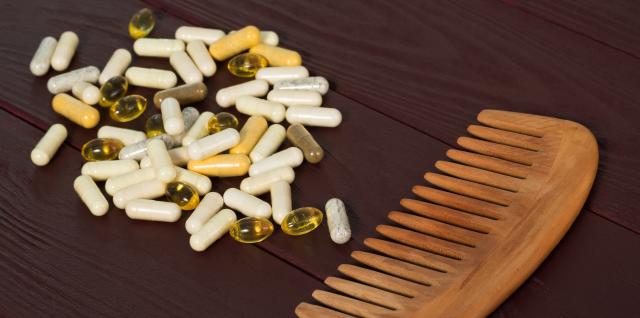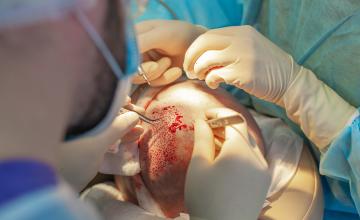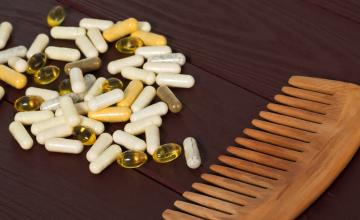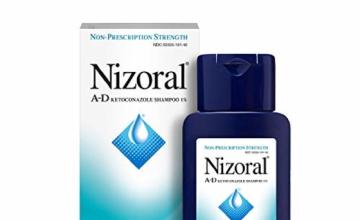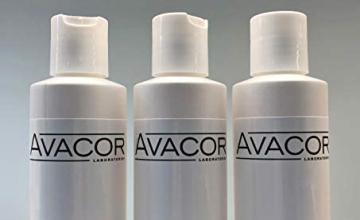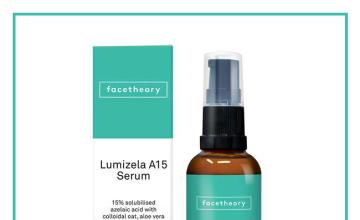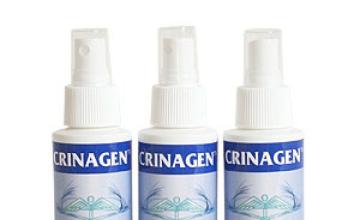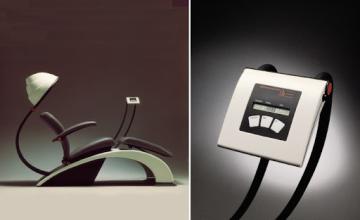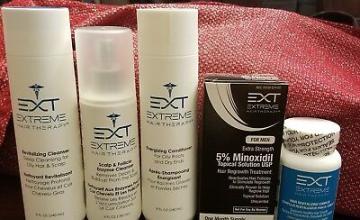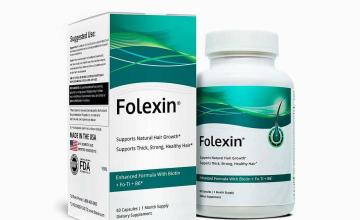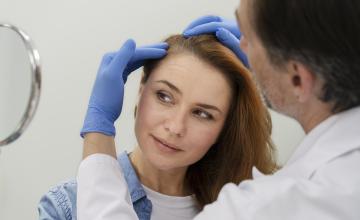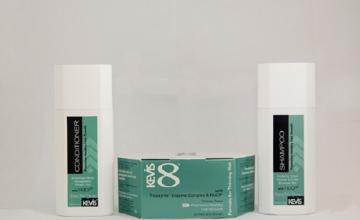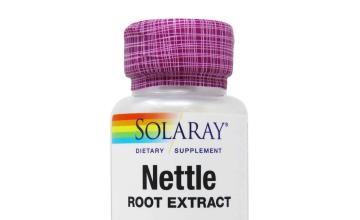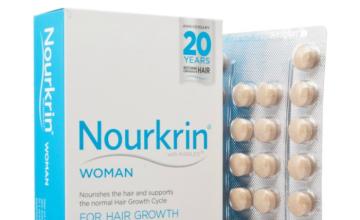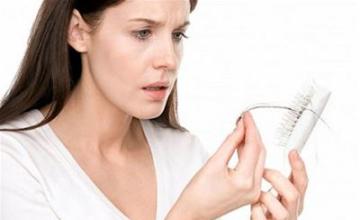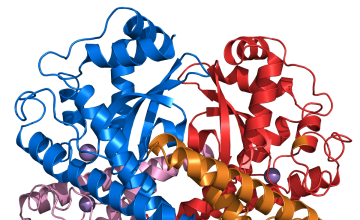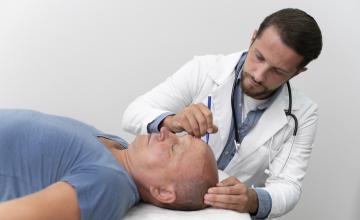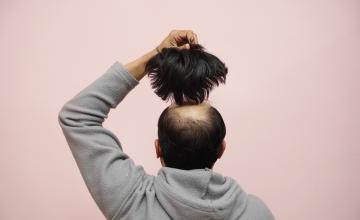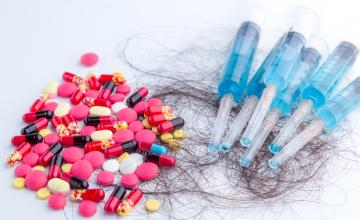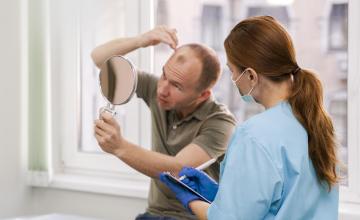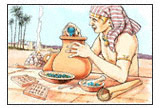
To date, the only two FDA approved hair loss treatments include Propecia (finasteride) and Rogaine (minoxidil). However, a number of alternative oral and topical products are marketed daily as effective hair regrowth solutions. Though there is no question that marketing often over-reaches in order to sell a product, the real question balding men and women ask is, is there any proof that these products are effective in treating baldness? What is the chance of regrowing hair?
Topical Hair Loss Products, Treatments and Cover Ups (Concealers)
For centuries men and women have been rubbing hair loss products including solutions, ointments, treatments and concoctions on their thinning hair in the hope of stimulating hair regrowth. In ancient Egypt it was popular to rub the fats of various animals, including lions, hippopotamuses, crocodiles, ibex, serpents and geese, onto the scalp as a hair loss cure.
Hippocrates had a personal interest in finding a treatment for baldness as he suffered from hair loss. He developed a number of different treatments, including a mixture of horseradish, cumin, pigeon droppings, and nettles to the scalp. These concoctions failed miserably and he became prominently bald. These and other treatments failures have continued to disappoint balding men and women.
Today’s Topicals - Snake Oils or Legitimate Hair Loss Products?

Today topical hair loss products such as special shampoos, conditioners, Rogaine, various scalp treatments, and cover up products can offer a potentially helpful adjunct to more effective and proven treatments such as Propecia (finasteride), Avodart (dutasteride), and or surgical hair restoration. However, many of the claims made by these topical treatments are unproven and even false.
What About Oral Hair Loss Treatments – Do They Work?
In addition to a multitude of topical hair loss treatments available, there’s an abundance of oral supplements that are conjectured to treat baldness. Most oral solutions include ingredients that attempt to stop hair loss by inhibiting the production of DHT, the hormone responsible for androgenic alopecia (male pattern baldness). However, much like topical treatments, very little proof exists for the majority of these claims.
Many products such as Provillus, Procerin, and Extreme Hair Therapy include both an oral and topical solution that attempt to stop hair loss at its source while working to stimulate hair follicles. But how effective are these topical, oral and all-in-one solutions?
To learn more about various Topical Hair Loss Products, click below
DHT Blockers– These topical such as Revivogen, Crinagen, Progesterone Creams, and Xandrox claim to minimize the amount of dihydrotestosterone (DHT) present in the balding scalp. They are applied directly to the scalp.
Growth Stimulators- These topical solutions claim to work by stimulating hair growth. They include Rogaine, Tricomin, Folligen, Proxiphen (along with Prox-N and Nano Shampoo) and Retin-A.
Azelaic Acid– An active ingredient found in popular topical hair loss treatments such as Xandrox and Provillus conjectured to inhibit the production of DHT.
Superoxide Dismutase– These topicals such as Tricomin, Proxiphen, Proxiphen-N and Folligen, claim to stop hair loss by reducing Super Oxide and also stimulating hair growth and reducing tissue inflammation.
Anti-Inflammatories- These anti-inflammatory treatments claim to reduce itching, flaking, redness, and inflammation that may increase hair loss. These topical treatment options include Tricomin, Folligen, Proxiphen and Proxiphen-N, Betadine and T-Gel and Nizoral Shampoo.
Cover Ups / Concealers- Topically applied scalp/hair cover ups like Toppik, Prothik, and Couvré can do a surprisingly good job of masking and minimizing a person’s appearance of being bald. These topical concealers and “cover ups” act by reducing the contrast between a hair loss sufferer’s thinning hair and balding scalp, while increasing the volume and fullness of the thinning hair.
Rogaine (Minoxidil)) – Applied twice daily to the balding areas, this treatment has only been shown to work in the crown (back of the head). It is the only topical treatment for hair loss that is FDA approved.
Propecia (Finasteride)– An FDA approved oral hair loss solution proven to inhibit the production of DHT, the hormone responsible for genetic male pattern baldness (MPB).
Provillus– A popular oral and topical solution containing FDA approved hair regrowth solution minoxidil and a number of all-natural ingredients that supposedly inhibit the production of DHT
Saw Palmetto– A popular herbal treatment contained in many marketed hair loss products including but not limited to Provillus, Procerin, and Extreme Hair Therapy (EXT)
Extreme Hair Therapy (EXT) – A nonsurgical 5 step hair loss treatment process provided by Hair Club
Xandrox– Topical hair loss solution containing azelaic acid and FDA approved hair regrowth solution minoxidil
Revivogen– Topical hair loss solution containing a number of all natural ingredients said to inhibit the production of DHT
Crinagen – A topical spray containing ingredients said to inhibit the production of DHT
Progesterone– A synthetic form of the female hormone progesterone that has been used to treat female hair loss
TRX2- TRX2 is marketed to hair loss suffering men and women and claims to help promote and sustain healthy hair growth through potassium channels.
To learn more about these and other treatments, see what real patients are saying about them on our hair loss forum.
